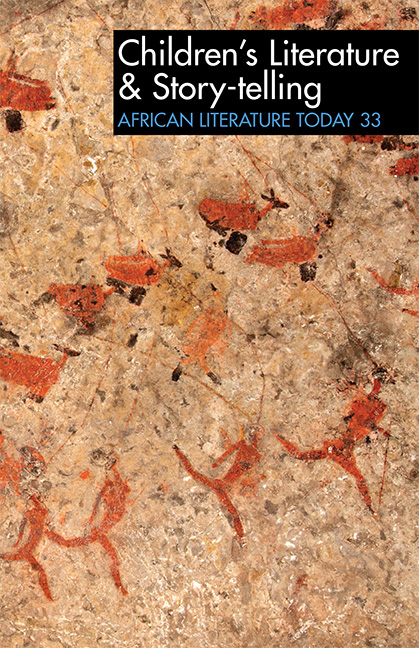Tomorrow’s Kings & Queens: Gender Representation in Ghanaian Children’s Literature
Published online by Cambridge University Press: 22 May 2021
Summary
Gender inequality is a major issue all over the world. In Ghana, it ranks highest among the factors that militate against national development. Research has shown that many children acquire gender awareness before their teenage years yet most gender discussions in literature are focused on works for adults. This article examines how gender disparity against females in children's books sends children a message that women and girls occupy a less important role in society than men or boys. The discussion is projected through a textual analysis of gender representation in some randomly selected Ghanaian children's literature.
Books, whether electronic or in print, influence lives in one way or another. Through words and illustrations they are able to usher the reader into a world of unlimited adventure and discovery while tucked up in a quiet spot. Books facilitate seeing others and other things in relation to ourselves and our environment. Through books we get to know ourselves better in terms of who we are and what our values are. During the formative years of their lives, up to twelve, children build up theories about what it means to be male or female as they observe how society classifies people and how gender roles are applied in society. They also begin the development of attitudes about the gendered features of toys, activities and work related roles. Thus the study of the content of children's literature in Ghana is much needed. The rationale for this chapter is rooted in the fact that amongst other factors, gender stereotypic philosophies have the potential to limit children's choices, interests, and abilities. Ultimately, it can inhibit the maximization of their potential. The relevance of books to children is undoubtedly one, if not the most significant aspect of developing the younger generation for a better society tomorrow. For this reason it is not only important that we give children books to shape their lives but also consider carefully the kind of books we give them.
Theoretically, Bem (1983), and Martin and Halverson (1981) suggest that based on gender schema theory, children develop their attitudes to their society in the early years. In support of the feminist views on gender awareness in children, Sandra Bem, an American psychologist specializing in gender studies, has found that by the age of four or five, children have already formed sex typing documentations in their minds (1983: 598).
- Type
- Chapter
- Information
- ALT 33 Children's Literature & Story-tellingAfrican Literature Today, pp. 156 - 167Publisher: Boydell & BrewerPrint publication year: 2015



